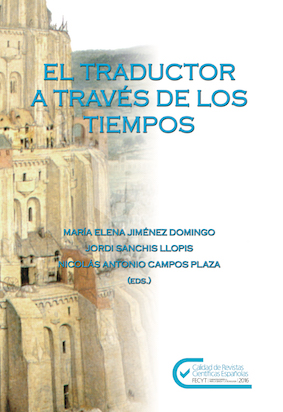El traductor en el laberinto jurídic: El cas Dreyfus
DOI:
https://doi.org/10.7203/qfilologia.21.9313 Resum
Resum
L'affaire Dreyfus va ser un esdeveniment que va estremir a la societat
francesa a la fi del segle XIX i, per açò, es va convertir en un fenomen
social que va tenir grans repercussions a França tant a nivell polític com a social gràcies a la informació que va facilitar la premsa i els mitjans de comunicació de l'època. L'anomenat cas Dreyfus va arribar a convertir-se en la causa comuna de nombrosos intel·lectuals (com Émile Zola, amb el seu famós article J’accuse) i sindicats. El nostre objectiu serà, per tant, el d'analitzar el laberint lingüístic i terminològic al que s'enfronta el traductor de textos jurídics, i per a açò hem triat les sentències del tres de juny de 1899 i del dotze de juliol de 1906 que van ser emeses per la Cour de cassation francesa sobre aquest cas.
Paraules clau: affaire Dreyfus; traducció judicial; terminologia jurídica,
arrêt; Cour de cassation.
 Descàrregues
Descàrregues
Descàrregues
Publicades
Com citar
-
Resum764
-
PDF (Español)711
Número
Secció
Llicència
 Este obra está bajo una licencia de Creative Commons Reconocimiento-NoComercial-SinObraDerivada 4.0 Internacional.
Este obra está bajo una licencia de Creative Commons Reconocimiento-NoComercial-SinObraDerivada 4.0 Internacional.
Tots els documents inclosos a OJS són d'accés lliure i propietat dels seus autors i/o institucions editores, i per tant, qualsevol acte de reproducció, comercialització, comunicació pública o transformació total o parcial necessita el consentiment exprés i escrit d'aquests.
Authors who publish with this journal agree to the following terms:
- Authors retain copyright and grant the journal right of first publication with the work simultaneously licensed under a Creative Commons Attribution License that allows others to share the work with an acknowledgement of the work's authorship and initial publication in this journal.
- Authors are able to enter into separate, additional contractual arrangements for the non-exclusive distribution of the journal's published version of the work (e.g., post it to an institutional repository or publish it in a book), with an acknowledgement of its initial publication in this journal.
- Authors are permitted and encouraged to post their work online (e.g., in institutional repositories or on their website) prior to and during the submission process, as it can lead to productive exchanges, as well as earlier and greater citation of published work (See The Effect of Open Access).




